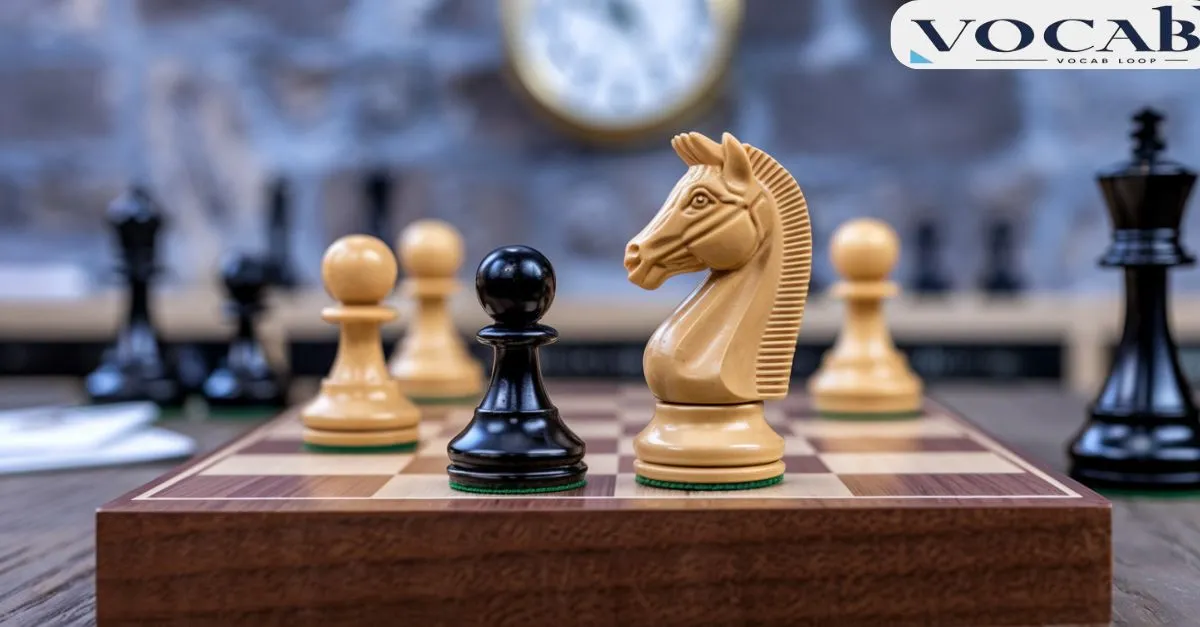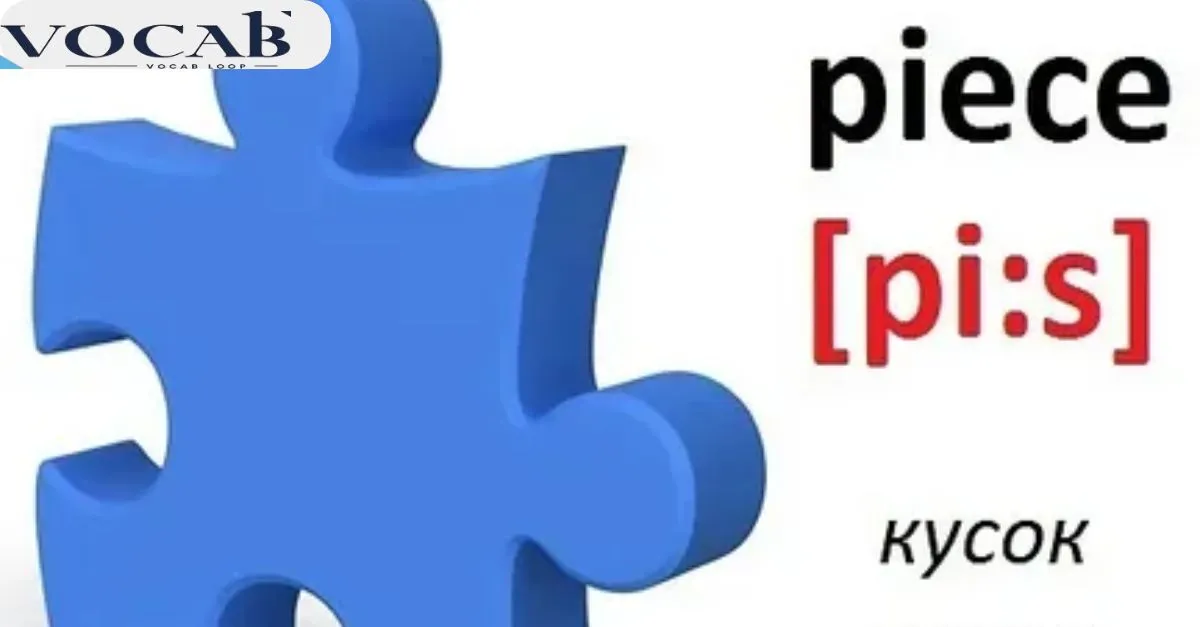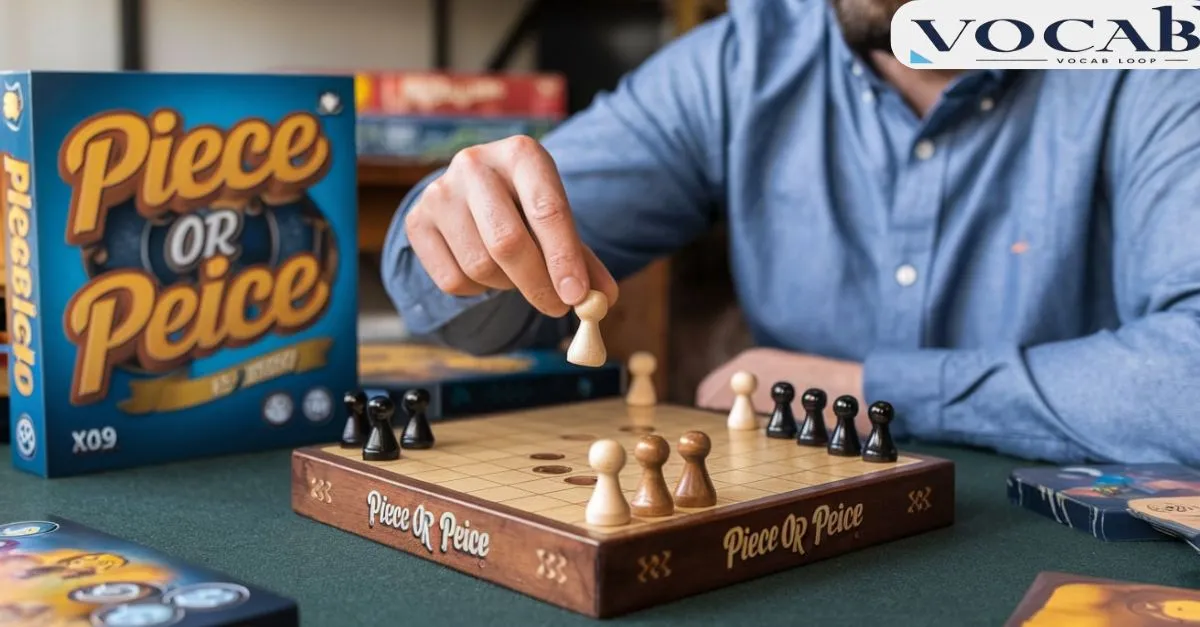In the English language, spelling errors often cause confusion, and “piece” vs “peice” is a common example. The correct spelling is “piece,” but the misspelling of piece as “peice” frequently happens due to typographical or phonetic mistakes. Understanding the difference between these words improves writing clarity and strengthens communication skills.
Many people struggle with spelling confusion like this because English words often don’t follow straightforward rules. While “piece” is the accurate spelling, “peice” is an incorrect spelling that can cause miscommunication. Let’s dive deeper into why this mistake occurs, its implications, and how you can avoid it.
What Is There Confusion Piece or Peice?

The confusion between piece and peice stems from two main issues: the tricky “i before e” rule and common phonetic errors. While the rule suggests placing “i” before “e” except after “c,” words like “piece” don’t follow it. This creates a spelling mistake even for fluent speakers. Additionally, the similarity in their pronunciation can lead to misspelled words like “peice.”
Errors like these highlight the complexity of language learning. Misplacing letters or misunderstanding rules can result in a common misspelling. Tools like spell checkers and grammar checkers can help, but understanding the proper usage of “piece” and why “peice” is wrong is crucial for effective writing.
Is the Piece Word Correct?

Definition:
The definition of piece refers to “a part of something” or “a single item in a group.” It is used widely in both formal and informal contexts.
Meaning:
The meaning of piece covers ideas like portions, fragments, or specific items. For example, you might refer to “a piece of information” or “a piece of cake.” The word has broad applications across literature, conversations, and everyday scenarios.
Usage:
Correct usage includes sentences like “I’ll take a piece of the puzzle” or “This sculpture is a stunning piece of art.” Accurate spelling ensures your writing remains clear and professional, avoiding writing mistakes.
Is the Peice Word Correct?

Definition:
The word “peice” does not have a valid definition. It is an incorrect spelling of “piece” and is not recognized in English dictionaries.
Meaning:
Since “peice” is a typo, it has no meaning. Its appearance in texts is solely due to typing mistakes or spelling slips.
Usage:
Using “peice” instead of “piece” can confuse readers and undermine your credibility. For instance, writing “a peice of advice” would be considered a spelling error in formal or informal writing.
Quick Summary Piece or Peice
To avoid spelling confusion, always remember: “piece” is the correct form, while “peice” is a misspelling. Here’s a quick table to clarify the difference:
| Word | Spelling | Definition | Usage Example |
| Piece | Correct | A part or fragment | A piece of cake |
| Peice | Incorrect | No definition | Not applicable |
Piece or Peice as Parts of Speech
“Piece” functions as a noun in most cases. For example, you might say, “I’ll take a piece of chocolate.” Its versatility allows it to describe tangible objects (a puzzle piece) or abstract concepts (a piece of advice).
However, “peice” is not a recognized word, so it cannot serve as any part of speech. Spelling mistakes like this can make writing unclear and confuse readers.
Pronunciation of Piece or Peice
The word “piece” is pronounced as /piːs/, rhyming with “peace.” Peice error occurs because people mishear or misinterpret the phonetic structure. Understanding this helps avoid spelling errors and improves writing proficiency.
Varied Contexts for Piece

“Piece” appears in many contexts. In art, it could describe a sculpture or painting. In daily conversations, you might use it when dividing items: “Can I have a piece of that pie?” Its flexibility makes it vital to spell and use correctly in every situation.
The Misleading Spelling: Peice
The peice mistake happens because English has many irregular rules. This typo often results from rushing while typing or overthinking spelling patterns. Using spell checkers and practicing proofreading can help identify and fix such errors.
The Importance of Correct Spelling
Why Spelling Matters
Correct spelling impacts writing skills and ensures your ideas are communicated clearly. For instance, “piece” conveys a clear message, while “peice” could lead to confusion.
Common Mistakes in Spelling
Errors like “peice” are frequent errors in English. Regular use of grammar tools, style guides, and proofreading tools can reduce these errors and improve overall language usage.
Side-by-Side Comparison: Piece vs. Peice
| Feature | Piece | Peice |
| Spelling | Correct spelling | Incorrect spelling |
| Definition | A part, portion, or fragment of something | No definition; does not exist in the English language |
| Meaning | Refers to a segment of a whole (e.g., a piece of cake, a piece of advice) | No meaning; it is a typo or a spelling error |
| Usage | Commonly used in both formal and informal contexts | Not used; considered a mistake |
| Etymology | From Old French piece, derived from Latin pettia | Does not have historical roots |
| Pronunciation | /piːs/ (rhymes with “peace”) | No standard pronunciation; likely misread as /piːs/ |
| Examples | “I’d like a piece of cake.” | “I’d like a peice of cake” (incorrect) |
| Language Acceptance | Accepted in American and British English | Rejected in all English dialects |
| Common Error Type | Rarely misspelled | Frequent typo due to the “i before e” rule |
| Tools to Fix Errors | Spell checkers and proofreading confirm accuracy | Tools flag “peice” as a misspelling |
Which One Is More Acceptable?
Clearly, “piece” is the proper spelling and widely accepted in both American and British English. Using “peice” is an obvious spelling mistake that should be avoided.
The Impact of Spelling on Writing Clarity
Enhancing Writing Clarity
Correct spelling improves message clarity, ensuring readers understand your intent. Tools like spell checkers are invaluable for maintaining effective communication.
The Ripple Effect of Misspellings
Repeated spelling errors can lower a writer’s credibility and create misunderstandings. A small typo like “peice” can have significant consequences in academic or professional settings.
Piece in British English and American English
The word “piece” has the same meaning and spelling in both British and American English. Its usage is consistent, making it a reliable term across these dialects.
Peice in British English and American English
“Peice” remains incorrect in both British and American contexts. Its presence indicates a typing mistake or lack of proofreading skills.
Common Mistake and How to Avoid Them
Avoid peice mistakes by using spelling tools or practicing rules like “I before E.” Double-checking your writing is the easiest way to spot typos and enhance communication clarity.
Trick to Remember the Difference Piece or Peice
A simple trick is to remember: “A piece of pie contains ‘pie.'” This mnemonic ties “piece” to its correct spelling while reinforcing its meaning.
Origins of Piece or Peice

Origins of Piece:
The word piece has rich historical roots that trace back to Old French piece and Late Latin pettia, meaning a part or fragment. This term originally referred to a physical fragment of something broken or divided. Over time, its meaning expanded to include abstract ideas, such as a “piece of advice” or a “piece of work.”
In Middle English, the term pece was adopted, with pronunciations that closely matched the modern “piece.” By the 15th century, “piece” became a staple word in English literature and conversation. Its adaptability made it applicable in various fields, including art, literature, and mathematics.
Origins of Peice:
The term “peice” has no historical or etymological significance. It arose solely as a spelling error due to the complexities of English orthography. Often, it results from misapplication of the “i before e except after c” rule. Unlike “piece,” “peice” never gained acceptance or appeared in formal texts, underscoring its status as a modern typo.
Synonyms of Piece or Peice
Piece:
- Part
- Segment
- Portion
- Fragment
- Section
- Slice
- Item
- Component
- Division
- Piecework
Peice:
There are no synonyms since “peice” is not a valid word.
Examples of Piece in Everyday Life

Cooking:
- She handed me a piece of bread with butter.
- “I’ll take a piece of pizza, please,” said the child.
- Each guest received a piece of chocolate as a gift.
- He sliced a piece of cheese for the sandwich.
- Can I have a small piece of cake to go with my coffee?
- The chef cut the roast into manageable pieces.
- She placed a piece of fruit on every plate.
- A piece of ginger was added to the recipe for extra flavor.
- He bit into a piece of candy from the jar.
- There’s a missing piece of pasta on the plate.
Literature:
- This short story is a brilliant piece of writing.
- The sculpture in the gallery was a stunning piece of art.
- Her latest book is a fascinating piece of fiction.
- That poem is a heartfelt piece of literature.
- The newspaper published an interesting piece on history.
- Critics praised the film as a masterpiece and a piece of storytelling.
- The essay was a remarkable piece of analysis.
- The symphony is a timeless piece of music.
- His speech was an inspiring piece of rhetoric.
- The journalist wrote a scathing piece on corruption.
Conversations:
- “Here’s a piece of advice: don’t skip breakfast.”
- Can I borrow a piece of paper to jot down notes?
- He always has a piece of wisdom to share.
- A small piece of information can make a big difference.
- Let me give you a piece of my mind about this.
- “Did you hear that funny piece of gossip at the office?”
- “I have a piece of news to share with you!”
- She’s writing a piece of her autobiography this weekend.
- “Here’s a piece of trivia I learned today,” he said.
- Can you hand me a piece of tape to fix this?
FAQs
What is the correct spelling: piece or peice?
The correct spelling is piece; “peice” is a misspelling.
Why is “piece” spelled the way it is?
It comes from Old French piece and Latin pettia, reflecting its historical spelling patterns.
How do I avoid confusing piece and peice?
Remember “piece” rhymes with “peace,” and both have “ie” in the same order.
Can “peice” ever be correct in any context?
No, “peice” is always incorrect and flagged as a spelling error.
Why does spelling matter when writing?
Correct spelling ensures clarity, enhances credibility, and avoids confusion.
Conclusion
The difference between “piece” and “peice” is essential for improving writing clarity. Using the correct form enhances your communication skills and ensures your message is professional. Always double-check your spelling, use tools like spell checkers, and practice frequently to master these essential writing skills.

Alex Hormozi is a seasoned blogger at Vocab Loop, known for his deep insights into language, vocabulary, and grammar. With years of experience in writing, Alex shares practical tips and effective strategies to help readers improve their linguistic skills and enhance their writing abilities.

